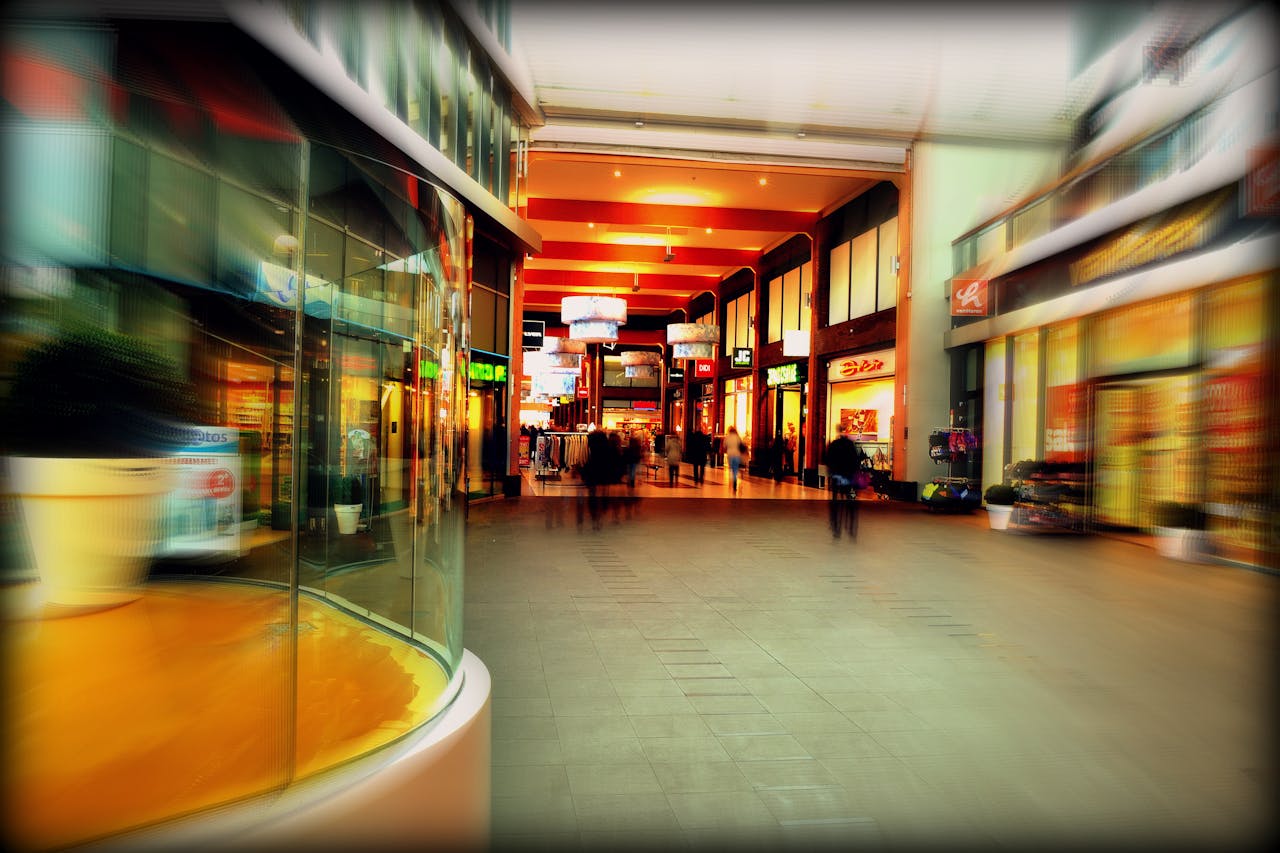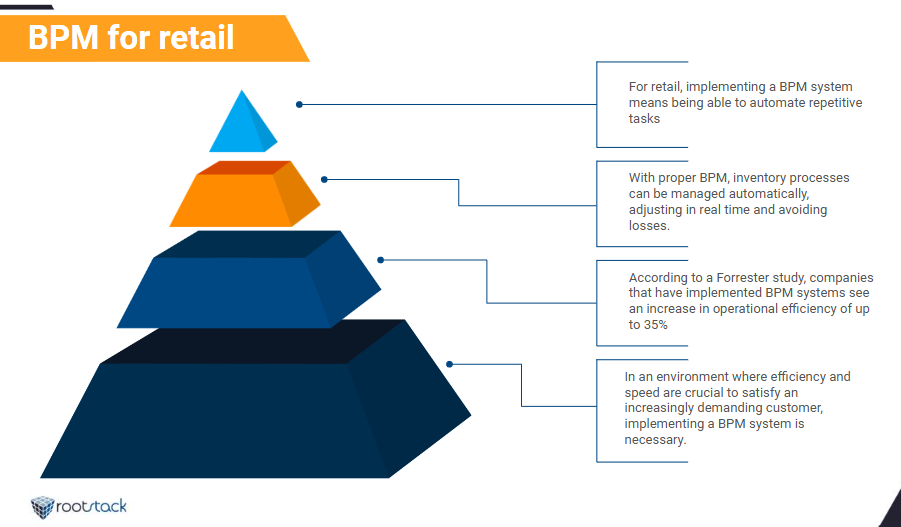
Business process management (BPM) has become an essential pillar for optimizing and automating operations in retail. In an environment where efficiency and speed are crucial to satisfy an increasingly demanding customer, implementing a suitable BPM system not only improves productivity but also drives business growth and adaptability.
For retail leaders, understanding what makes a business process management system the best choice and how it can impact their operations is key to making informed and competitive decisions.
What is BPM and why is it crucial for retail?
BPM is a systematic approach that allows organizations to model, analyze, and optimize their business processes to improve efficiency, reduce costs, and increase productivity. For retail, implementing a BPM system means being able to automate repetitive tasks, optimize the supply chain, and streamline customer service, essential factors for improving competitiveness and profitability.
For example, with an adequate BPM, inventory processes can be managed automatically, adjusting in real-time to customer demand and avoiding losses. According to a Forrester study, companies that have implemented BPM systems see an increase in operational efficiency of up to 35%, which results in a significant improvement in their profit margins.

Essential characteristics of a BPM system for retail
To select the best BPM system for a retail company, it is essential to evaluate some key characteristics that align with the specific objectives of the sector. These characteristics are essential for the system to adjust to the demands of this type of business:
1. Automation and flexibility
The ability to automate processes is one of the most relevant aspects of a BPM. This allows activities such as inventory management, order processing, and customer service to be handled with minimal manual intervention, which reduces the margin for error and allows staff to focus on higher-value tasks. In addition, a good BPM system must offer flexibility to adapt to rapid changes in the market, as retail is a highly dynamic sector. According to Deloitte, adaptable BPM systems allow companies to respond to market changes up to 50% faster.
2. Visibility and data analysis
Real-time visibility is key to effective decision-making. A BPM system must provide detailed, real-time information on processes, from receiving goods to customer satisfaction. In addition, by integrating data analysis tools, a BPM system allows for obtaining critical metrics, identifying bottlenecks, and forecasting demands. With this information, company leaders can adjust their strategies and continually improve processes.
3. Scalability
Retail can experience significant fluctuations in operations, so having a scalable BPM is essential to adapt to demand spikes, such as those that occur during peak seasons. A scalable system allows resources and processes to be adjusted without the need for significant restructuring, thus ensuring business continuity and customer satisfaction.
4. Multichannel Integration
Omnichannel is a critical strategy for retail today. An effective BPM system must integrate with online sales platforms, mobile applications, and other channels to offer a consistent and fluid experience. For example, the BPM must efficiently manage orders across all channels, synchronizing inventories and customer data in real-time, avoiding billing errors, and reducing delivery times.

Key Benefits of Implementing a BPM System in Retail
Implementing a BPM system in the retail sector brings tangible benefits that boost both customer satisfaction and the company's financial results.
- Improved Customer Satisfaction
By automating and optimizing processes, such as customer service and product delivery, BPM allows for reduced waiting times, improved order accuracy, and personalized shopping experiences. Customer satisfaction is greatly increased, leading to increased loyalty and positive recommendations.
- Cost Reduction
Process optimization also results in reduced operating costs. Automated activities require less human intervention and minimize the risk of errors, reducing expenses on rework or returns. According to an IDC report, retail companies that implement BPM systems can reduce their operating costs by up to 20%.
- Agility and Adaptability
A suitable BPM system allows companies to be more agile and respond quickly to changes in the market or unexpected events. This becomes especially important in retail, where customer preferences and market trends can change quickly. With a flexible BPM, it is possible to modify processes without affecting the overall operation.
BPM System Implementation: Final Thoughts
To achieve a successful implementation of a BPM system in retail, it is essential to have an adequate adoption and training strategy. It is advisable to carry out an initial analysis phase to identify the processes that require further optimization, as well as to ensure complete training of the team in the use of the system.
In addition, working with a provider who understands the particularities of the retail sector makes it easier for the BPM system to adapt to the specific needs of the business. Progressive implementation and continuous monitoring are crucial steps to maximize the benefits of the investment and ensure a smooth integration.
The best business process management (BPM) system for retail is one that combines automation, flexibility, data visibility, and scalability, allowing companies to be more efficient, reduce costs, and improve the customer experience. For leaders in this sector, implementing a BPM is a strategic decision that can transform operations and ensure a competitive advantage in an increasingly demanding market.
Investing in a BPM system designed specifically for the needs of retail can be the key to optimizing operations and building a loyal customer base, prepared to face the challenges of the future. At our agency, we have BPM solutions that adapt to the needs of your company, ensuring that each process is aligned with business objectives and customer expectations.
We recommend you on video

